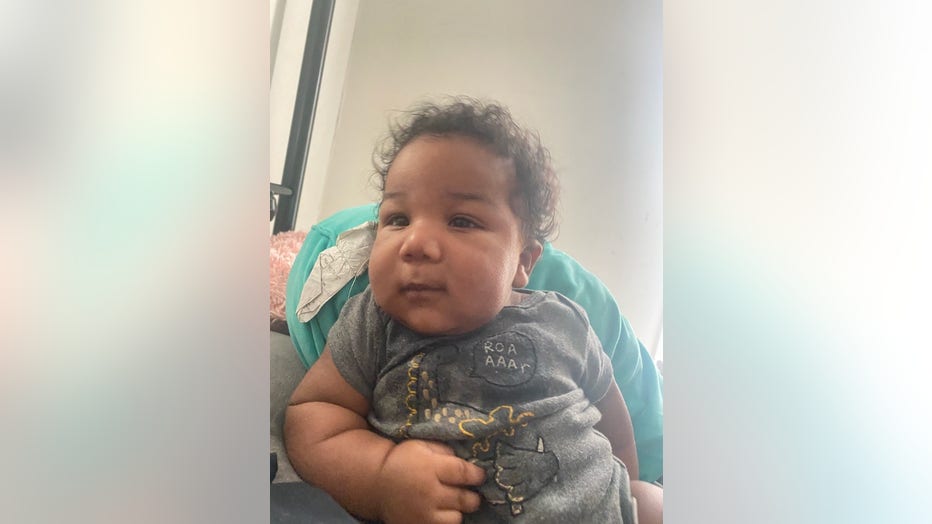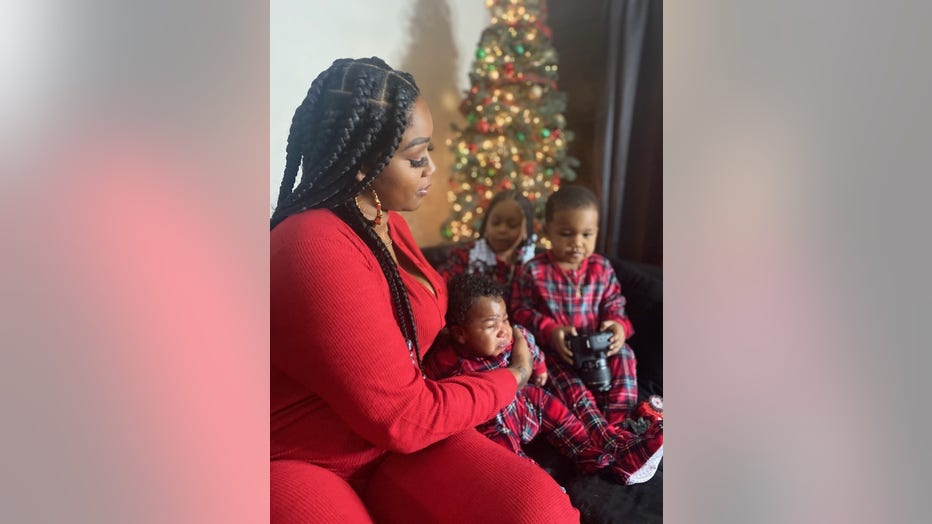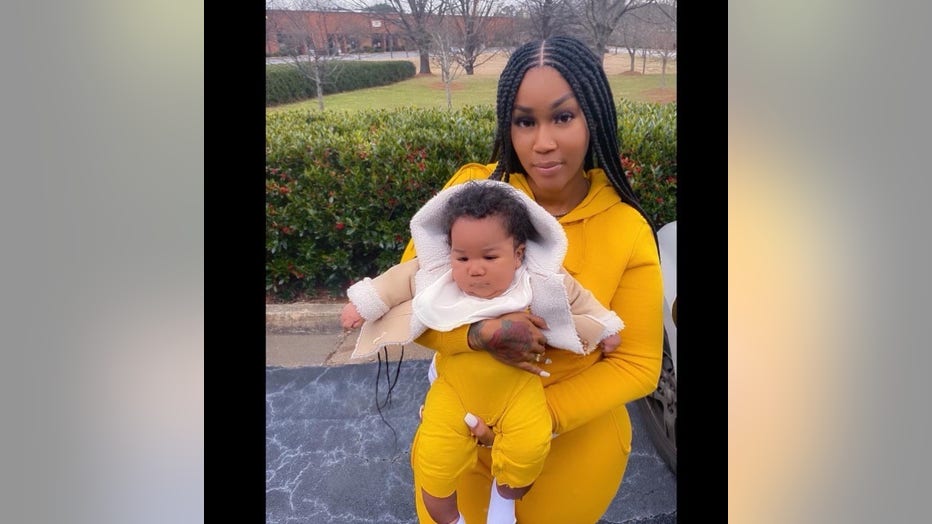After losing 4-month-old son to SIDS, Georgia father urges parents to know, follow safe sleep practices
Father loses child to Sudden Infant Death Syndrome
Each year in the U.S., about 3,400 babies die suddenly and unexpectedly during their sleep, and four-month-old Khyree Long was one of them. His father, Marcellus Long, says heard of Sudden Infant Death Syndrome, but he didn't know much about it until his lost his own baby.
ATLANTA - Born on Oct. 20, 2020 at Atlanta's Northside Hospital, Marcellus and Zanaviea Long's son Khyree Kruz Long began turning heads right out of the gate.
"He was the biggest baby on the floor: 10 pounds, two ounces," Marcellus Long laughs. "You couldn't not notice him because, I mean, he was so huge! But, his smile was amazing."
With a 2- and 4-year-old siblings at home, Khyree was soon hitting his newborn milestones: sitting up a 2 months, holding his own bottle at 3 months."

Khyree Long died Feb. 15, 2021 of SIDS, or sudden infant death syndrome. ((Credit: Marcellus Long))
His father says he was silly, energetic and very loving, even at four months.
"He was very, very affectionate; he always wanted to be up under us," Long says. "At the time, my wife was a stay at home mom, so she spent a lot of time with him. He was her best friend."
It has been two and a half years since Khyree Long died unexpectedly in his sleep, and Long, a distribution supervisor at Children's Healthcare of Atlanta, feels like he is ready to tell their story.
"It was the Feb. 15, 2021, the day after Valentine's Day," he says.
Around midnight, Long says they fed Khryee, burped him, and laid him down in his crib.
Zanaviea got up first around 6 a.m.
But, Long says, Khyree's room was quiet. They realized that was unusual.
"When she woke up, she checked on him, because I was still asleep at the time," he remembers. "She realized he was unresponsive, and he was cold. So, she then woke me up, screaming and crying."
The next few minutes were chaotic as their two other children watched from the doorway of Khyree's room.

Zanaviea Long holds her newborn Khyree Long in Dec. 2020, two months before he died in his sleep. (Long family photo)
"We were screaming, going back and forth, trying to figure out what was going on," Marcellus Long says. "She then called 911. I was trying to do CPR, but it was too late at that moment. I remember how shocked and confused I was, and that morning, my wife was just hysterical."
They would later learn Khyree had died from sudden infant death syndrome or SIDS.
Children's Healthcare of Atlanta pediatrician Dr. Terri McFadden says what happened to the Longs is not all that rare.
"It turns out that in Georgia, we lose about three babies every week to sleep-related deaths," Dr. McFadden says. "So, it's a really common cause of infant mortality."
That number stunned Marcellus Long.
"Three a week is a lot. That's a lot of of of children that we're losing," he says.
The Longs do not know what caused their baby to stop breathing during the night, which is common with SIDS.
McFaddon says it is not clear why, but Black babies are at higher risk of dying during their sleep than white or Hispanic infants.
The highest risk period for sleep-related deaths is the first year of life, especially the first few months of life, McFadden says.
The risk of SIDS typically peaks around four months, which is how old Khyree was when he passed.

Zanaviea Long holds her newborn son, Khyree Long, who died in Feb. 2021 of SIDS. (Long family photo)
"It is devastating to lose a perfectly healthy baby," Dr. McFadden says. "You put them to sleep, and you go back to check on them, and they're not breathing. So, I think it's important for parents to understand that sleep-related deaths are largely preventable if you keep in mind the best practices, which we call the ABC's of safe sleep."
The "A" stands for the baby should sleep alone.
"The baby should be alone in their own crib without any without siblings," McFadden explains. "They shouldn't be sleeping with an adult caregiver, or sleeping on a parent's bed."
Parents and caregivers of newborns may be exhausted, which can cause them to fall into a deep sleep when they are finally able to get some rest.
"So a baby that's sleeping in a parent's bed could easily roll up against that parent and suffocate," McFadden explains. "And the parent wouldn't even realize that that was going on."
McFadden says "B" stands for place the baby on his or her back to sleep.
"We know that babies who sleep on their backs have half the risk of dying from SIDS," she says.
New parents, she says, will sometimes get mixed messages with grandparents telling them they placed their babies on their stomachs to sleep.
Dr. McFadden says that advice changed in the mid-90's as experts realized babies left on their bellies might not have the strength to lift their necks to avoid suffocating.
"We don't know all of the mechanisms that contribute to babies being safer on their backs," McFadden says. "But the research is very clear that babies who sleep on their tummies have twice the risk of dying from SIDS. And that was information that we didn't know back, you know, 30 years ago."
The "C" of safe sleep stands for the baby should sleep in a clear crib, without blankets, toys and bumpers, which can be suffocation hazards.
"Place them in a crib that's for them, just for them, that doesn't have any pretty bumpers or stuffed animals or heavy blankets that they could accidentally roll up against and actually suffocate or stop breathing," McFadden says. Save those things for later when we're out of that period where babies are at risk for SIDS"
Marcellus Long shared Khyree's story in a video created by Children's Healthcare of Atlanta's Strong 4 Life program.
"I still feel him all the time. I still feel his presence. I still feel him here," Long says.
And Long says he sees Khyree in their older children, and in their "rainbow baby," Khaleesi. She was born nearly a year after they lost her brother.
"Khyree was everything," Marcellus Long says. "He was everything. I miss him a lot."

